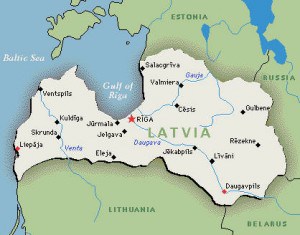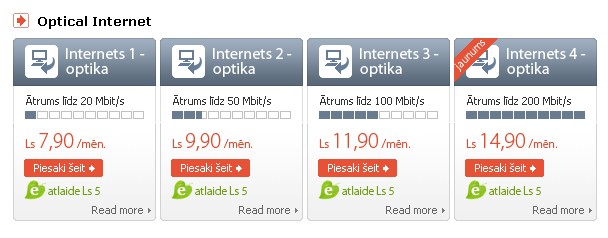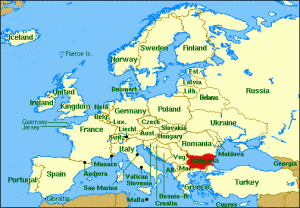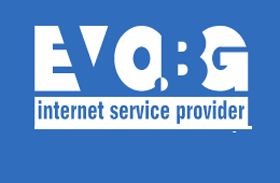 Latvia is celebrating today with the news it has the world’s second fastest broadband service, now beaten only by South Korea.
Latvia is celebrating today with the news it has the world’s second fastest broadband service, now beaten only by South Korea.
According to Ookla, which released speed measurement test results this week, the Baltic state in northeastern Europe achieved second place with a speed index of 24.41 Mbps, ahead of Moldova (21.63 Mbps), Japan (20.43 Mbps) and Sweden (19.95 Mbps).
Latvia has come a long way from its former days as a Soviet Socialist Republic. The country declared its independence March 3, 1991 and adopted a parliamentary democracy. Latvia maintains close economic ties with the United States and Scandinavian countries, and has rapidly sought its future within the European Community, distancing itself from Russia. Today Latvia is a member of both the European Union and NATO.
Like other Baltic republics Lithuania and Estonia, Latvia has undergone a complete telecommunications transformation. Out went the old Soviet-era telephone exchanges with antiquated copper wire, and in came optical fiber, especially in the nine major cities within Latvia’s administrative divisions. Latvia’s economic planning heartily endorsed broadband service as a major economic driver, and the country and its citizens depend heavily on its broadband networks for entertainment, banking, business, education, and facilitating health care.
As a result, broadband is plentiful, fast, and remarkably inexpensive, especially in cities. In rural communities, parts of Latvia still rely on older DSL technology delivered over traditional phone lines, but the country has plans for universal optical fiber as finances allow. Meanwhile, widespread wireless mobile networks provide Europe’s least expensive cell service, with a charge averaging just four cents per minute to make and receive calls.
 Latvia’s dominant broadband provider is Lattelecom, co-owned by the Latvian government and Sweden’s TeliaSonera AB. Its broadband packages stun the rest of Europe and North America.
Latvia’s dominant broadband provider is Lattelecom, co-owned by the Latvian government and Sweden’s TeliaSonera AB. Its broadband packages stun the rest of Europe and North America.
For customers in Riga, Jurmala, Jelgava, Daugavpils, Valmiera, and Ventspils districts, fiber optic broadband delivers service up to 200 Mbps upstream/downstream for just under $26.02 per month. At that price, they also include a guarantee that speeds will always be above 30/20 Mbps.

Lattelecom's broadband tiers. In order, in U.S. dollars -- $13.80, $17.29, $20.78, and $26.02, all without a service contract.
Lattelecom is also introducing a 500Mbps service shortly. There are additional substantial discounts for expectant mothers, educators, and the disabled. For those too distant to access the fiber network, a DSL package up to 10Mbps with unlimited telephone calling (including international long distance) costs $37.45 per month.
The Baltic press has run with the success story of the region’s broadband providers, especially in light of the continued decline in scores for broadband in the United States, which has now fallen to 26th place (10.15 Mbps), and the United Kingdom, 33rd (7.71 Mbps). Canada came in at 32nd (7.92 Mbps).
The most dramatic improvements in broadband continue in eastern Europe, particularly in the Republic of Moldova, its next door neighbor Romania and Bulgaria. South Korea maintains its world-leader status.
Among the worst performers: Haiti, Lebanon, El Salvador, Afghanistan, Guatemala, Zimbabwe, Yemen, Mali, and Sudan.
 Bulgaria’s capital city, Sofia, will be blanketed in fiber-to-the-home broadband by the year 2014, according to Bulgarian Internet provider EVO.bg. The company is investing $860 million to roll out its fiber network, which it says will deliver some of Europe’s fastest broadband speeds.
Bulgaria’s capital city, Sofia, will be blanketed in fiber-to-the-home broadband by the year 2014, according to Bulgarian Internet provider EVO.bg. The company is investing $860 million to roll out its fiber network, which it says will deliver some of Europe’s fastest broadband speeds. Today, broadband demand is causing a usage explosion, and companies are upgrading their networks to meet the challenges customers bring.
Today, broadband demand is causing a usage explosion, and companies are upgrading their networks to meet the challenges customers bring.

 Subscribe
Subscribe




